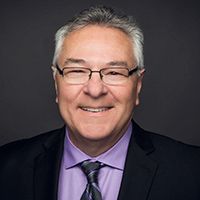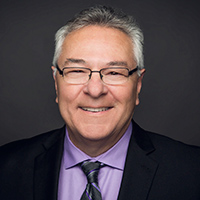Are You Really Ready for a DIY Retirement Plan?
See if you have what it takes by answering a few questions.


Profit and prosper with the best of Kiplinger's advice on investing, taxes, retirement, personal finance and much more. Delivered daily. Enter your email in the box and click Sign Me Up.
You are now subscribed
Your newsletter sign-up was successful
Want to add more newsletters?
We live in a do-it-yourself world.
Want to paint your house, fix your car, learn to dance or to play the guitar? Just go online, and you’ll find all the advice you ever could want.
And so it is with retirement planning. If you search that term on YouTube alone, you’ll get nearly 300,000 results.
From just $107.88 $24.99 for Kiplinger Personal Finance
Become a smarter, better informed investor. Subscribe from just $107.88 $24.99, plus get up to 4 Special Issues

Sign up for Kiplinger’s Free Newsletters
Profit and prosper with the best of expert advice on investing, taxes, retirement, personal finance and more - straight to your e-mail.
Profit and prosper with the best of expert advice - straight to your e-mail.
So, sure, you can DIY your retirement, just like anything else. But because you can doesn’t mean you should. Here are some things to consider if you’re thinking of going it alone:
1. How good are you at establishing goals? This is a biggie, and most people skip right over it. They have no clue what they want to do when they retire, and they have no idea how much money they’ll need to do it. Often, their retirement plan doesn’t go any further than, “I’m going to sleep late.” But you’ll need to decide what kind of lifestyle you’ll want, what your budget will be and where that money is going to come from.
2. How much do you know about your current investments? If you have a handle on what you already have – what’s in your 401(k) and any other accounts – that’s a good start. But you’ll also have to decide what you’ll do with that money once you retire (considering tax consequences and inflation, among other things). And you should know why you are investing: Is it for income, for growth or both?
3. Are you willing to do the work required to do your own investing? You’ll need extensive knowledge about the companies you’re buying stock in, and you’ll want to know what’s in any mutual funds you purchase. You have to consider what those companies’ financials are, what their price to earnings ratios are, and what their debts are. You’ll have to stay on top of national and international news, too, so you can gauge any political ramifications if those companies do business overseas, or if they’re being sued or have a product or PR move that’s a failure.
You’ll also need to know how to analyze the data you’ve collected to make wise decisions. Is that what you want to do instead of golfing or relaxing with a glass of lemonade?
4. Do you know what kind of investor you are? Are you conservative, moderate or aggressive? Or, to put it another way, how much money are you willing to lose? You’ll have to make that call when building your portfolio, then trust yourself to stick to your plan. Because there will be times when your predictions will be wrong. And your emotions – particularly greed and fear – will cause you to second-guess yourself. We’re all tolerant of risk when we’re making money, but not so much when we’re watching it disappear. Remember, the income that comes from your investments will have to last the rest of your life.
There always will be a DIY crowd. I meet these folks all the time. And over the years, I’ve found there are a few basic reasons why they make that choice.
- Some people just don’t trust financial professionals. (In most of those cases, they don’t trust many other professionals, either.)
- Others truly take an interest in investing and believe they can do it better themselves.
- And there’s also a significant number of people who are intimidated or even embarrassed to talk to someone about their financial situation. They’ve been taught that it’s something to keep private, or they’ve let it get so out of hand, they’re sure we’ll laugh or scold them or simply turn them away.
If you’re hesitant to work with a professional, my recommendation is to meet with an adviser whom a close friend trusts and see how it goes. Usually, it doesn’t cost anything for an initial meeting.
Here’s the thing: You can still have a pro repaint your house if you screw it up. You can get a mechanic to fix your car. You can give up on the guitar if that doesn’t work out, and you can beg your friends not to post their videos of you dancing on Facebook.
But you can’t get your nest egg back if you fail as your own retirement planner.
Kim Franke-Folstad contributed to this article.
Profit and prosper with the best of Kiplinger's advice on investing, taxes, retirement, personal finance and much more. Delivered daily. Enter your email in the box and click Sign Me Up.

Charles Ragonese is president of Mountain Peak Financial Inc., which he founded in 1992. He is a licensed insurance agent and has passed the Series 65 exam and is an investment adviser representative in California. Ragonese also holds the designations of Chartered Retirement Planning Counselor (CRPC) and Certified Fund Specialist (CFS), and is a member of the National Association of Insurance and Financial Advisors (NAIFA). Mountain Peak Financial, Inc. focuses on retirement planning.
Investment advisory services offered only by duly registered individuals through AE Wealth Management LLC (AEWM). AEWM and Mountain Peak Financial Inc. are not affiliated companies.
-
 Americans, Even With Higher Incomes, Are Feeling the Squeeze
Americans, Even With Higher Incomes, Are Feeling the SqueezeA 50-year mortgage probably isn’t the answer, but there are other ways to alleviate the continuing sting of high prices
-
 Hiding the Truth From Your Financial Adviser Can Cost You
Hiding the Truth From Your Financial Adviser Can Cost YouHiding assets or debt from a financial adviser damages the relationship as well as your finances. If you're not being fully transparent, it's time to ask why.
-
 How to Manage a Disagreement With Your Financial Adviser
How to Manage a Disagreement With Your Financial AdviserKnowing how to deal with a disagreement can improve both your finances and your relationship with your planner.
-
 Are You Honest With Your Financial Adviser? Why Hiding the Truth Can Cost You
Are You Honest With Your Financial Adviser? Why Hiding the Truth Can Cost YouHiding assets or debt from a financial adviser damages the relationship as well as your finances. If you're not being fully transparent, it's time to ask why.
-
 Missed Your RMD? 4 Ways to Avoid Doing That Again (and Skip the IRS Penalties), From a Financial Planner
Missed Your RMD? 4 Ways to Avoid Doing That Again (and Skip the IRS Penalties), From a Financial PlannerIf you miss your RMDs, you could face a hefty fine. Here are four ways to stay on top of your payments — and on the right side of the IRS.
-
 What Really Happens in the First 30 Days After Someone Dies (and Where Families Get Stuck)
What Really Happens in the First 30 Days After Someone Dies (and Where Families Get Stuck)The administrative requirements following a death move quickly. This is how to ensure your loved ones won't be plunged into chaos during a time of distress.
-
 5 Retirement Myths to Leave Behind (and How to Start Planning for the Reality)
5 Retirement Myths to Leave Behind (and How to Start Planning for the Reality)Separating facts from fiction is an important first step toward building a retirement plan that's grounded in reality and not based on incorrect assumptions.
-
 I'm a Financial Adviser: Silence Is Golden, But It Hurts Your Heirs More Than You Think
I'm a Financial Adviser: Silence Is Golden, But It Hurts Your Heirs More Than You ThinkTalking to heirs about transferring wealth can be overwhelming, but avoiding it now can lead to conflict later. Here's how to start sharing your plans.
-
 Will Your Children's Inheritance Set Them Free or Tie Them Up?
Will Your Children's Inheritance Set Them Free or Tie Them Up?An inheritance can mean extraordinary freedom for your loved ones, but could also cause more harm than good. How can you ensure your family gets it right?
-
 I'm a Financial Adviser: This Is the Real Key to Enjoying Retirement With Confidence
I'm a Financial Adviser: This Is the Real Key to Enjoying Retirement With ConfidenceA resilient retirement plan is a flexible framework that addresses income, health care, taxes and investments. And that means you should review it regularly.
-
 Buy and Hold … or Buy and Hope? It's Time for a Better Retirement Planning Strategy
Buy and Hold … or Buy and Hope? It's Time for a Better Retirement Planning StrategyOnce you're retired, your focus should shift from maximum growth to strategic preservation and purposeful planning to help safeguard your wealth.